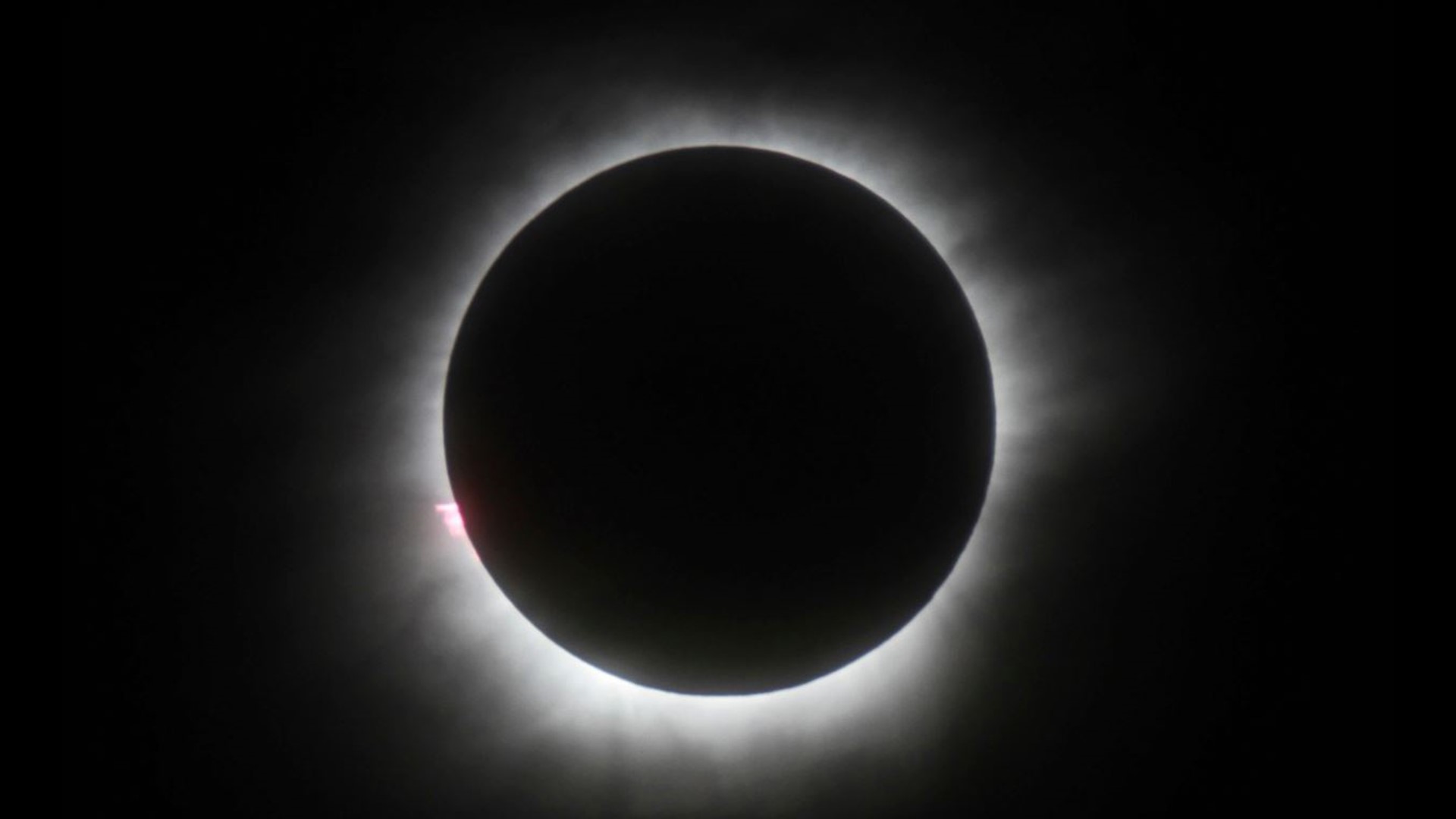COLUMBUS, Ohio — While Columbus isn't directly in the path of totality for the upcoming total solar eclipse on April 8, other parts of Ohio are and many schools in the area are planning early releases or to cancel classes completely so kids have the chance to see it.
According to NASA, in Cleveland, a partial eclipse will begin at 1:59 p.m. and end at 4:29 p.m., but the totality begins at 3:13 p.m. and ends at 3:17 p.m. Solar eclipses happen when the path of the moon crosses directly in front of the sun.
Parts of the state will be in total darkness for a few brief moments during totality and the remainder of the state will see the sun at least 95% blocked by the moon.
The last time the state has seen a total eclipse like this was in 1806, making this a once-in-a-lifetime event.
While the eclipse is toward the end of most school days, the Ohio Department of Education said on its website that a number of factors could play in to schools deciding to cancel classes or dismiss them early. Some contributing factors are an increase of tourists in the state, especially near the center line of totality, as well as heavy traffic and bandwidth for cell service and internet could be diminished.
Some of the schools that have announced their decision are South-Western City Schools (early release), Dublin City Schools (no school), Columbus City Schools (no school), Reynoldsburg City Schools (no school) and Bexley Schools (early release). Click here to view our full list.
For those wanting to see the eclipse, NASA suggests wearing eye protection. The only time it's not needed is during the brief total phase when the moon completely blocks the sun's bright face.
NASA says viewing any part of the sun through a camera lens, binoculars or a telescope without a special-purpose solar filter secured over the front of the optics will instantly cause severe eye injury. For those looking up at the sun, it's necessary to wear eclipse glasses or a safe handheld solar viewer.
It's important to note that eclipse glasses are not the same as sunglasses. Safe solar viewers are thousands of times darker.
NASA also warns not to look at the sun through a camera lens, telescope, binoculars or other optical device while wearing eclipse glasses or a handheld solar viewer. The concentrated solar rays will burn through the filter and cause serious eye injury.
For more information on safely watching the 2024 solar eclipse, click here.

